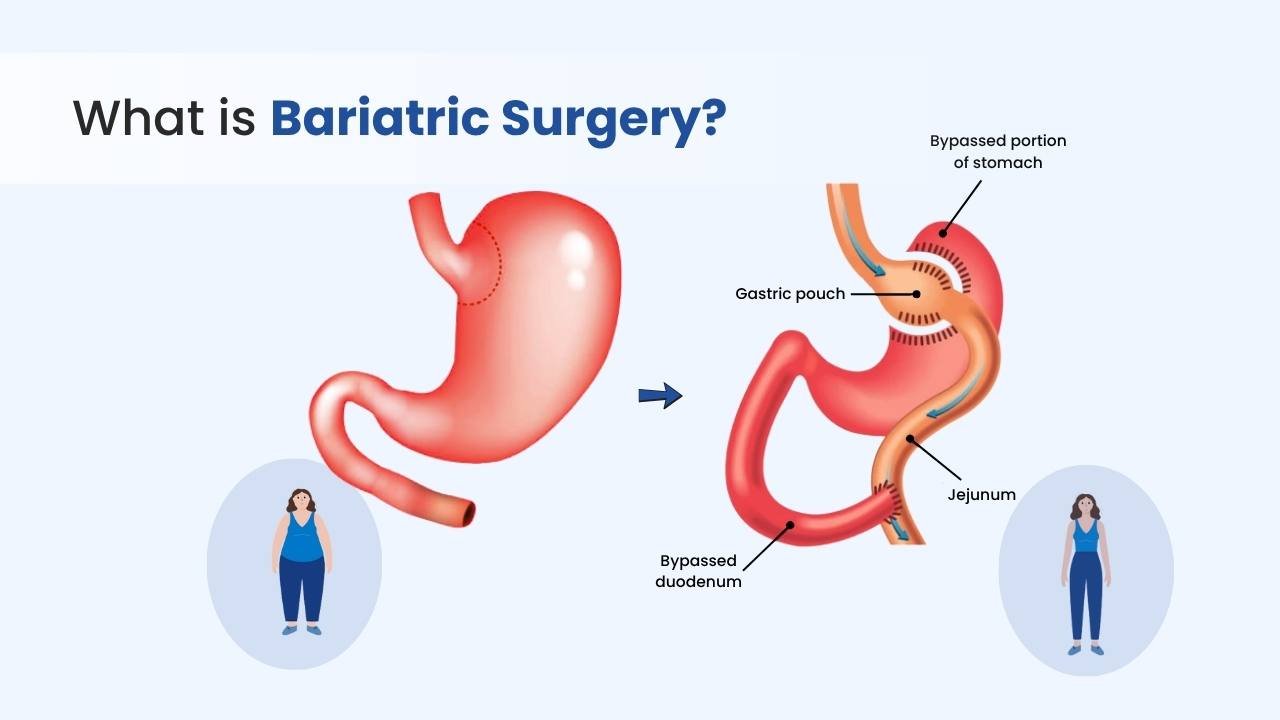Home Blogs Bariatric Surgery Drinking After Bariatric Surgery: Essential Dos and Don’ts for Safe Recovery

Drinking After bariatric surgery, it's crucial to know how to drink for a healthy recovery and lasting weight loss. First, you must avoid drinking during meals. This helps prevent dumping syndrome. Stay away from fizzy, sugary, and alcoholic drinks. Instead, make sure to drink plenty of plain water and follow your doctor’s advice. These small changes can help you heal, reduce complications, and maintain a healthy weight balance after surgery.
Bariatric surgery is a type of weight loss surgery that helps people lose weight and live a healthier life. There are different types of bariatric surgery, but they all work similarly by making the stomach smaller.
This surgery can be a good option if you are very overweight and have tried other ways to lose weight, like dieting and exercise, but haven’t had enough success.
Research shows that having surgery can help people live longer, especially if they maintain a healthy lifestyle after surgery.

Bariatric surgery is a surgical procedure used to manage obesity and obesity-related conditions. These surgeries change the shape and size of your stomach, causing you to eat less. Some types also change how your body digests food, helping you burn fat better. A few procedures even affect hunger hormones, so you feel less hungry.
But surgery alone won’t solve everything to maintain your weight loss; you still need to eat healthy, stay active, and develop good habits.
Weight loss surgery can change your life. But remember, the surgery is just the first step. To keep your results and stay healthy, you need to follow some important instructions after the surgery.
Some surgeries, like the gastric balloon, are only temporary. Others, like the gastric band, do not change your stomach permanently. No matter what surgery you have, you should always follow your doctor’s advice, especially about food.
•Here are some simple Dos and Don’ts after weight loss surgery:
✅Eating After Surgery
✅Eat protein-rich food first.
✅Take Care of Your Mental Health
Some people feel sad and depressed after surgery, but it is more common than you think.
You can talk to a psychologist, join a support group, don’t hide your feelings, speak up, and get help.
✅Don’t Forget Your Vitamins
After surgery, your body might not absorb vitamins and minerals properly. That’s why you need to take supplements every day. If you skip them, you could face problems like iron deficiency, weak memory, and kidney issues. So, take your vitamins daily as your doctor tells you.
✅Stay Hydrated
Drink 2 to 3 litres of water every day, because it helps your body recover and stay healthy.
But don’t drink any liquid 15 minutes before meals. Also, you should avoid sugary and fizzy drinks, limit tea and coffee, and plain water is best for you.
•After your surgery, take your time before returning to your old eating habits. Follow the food plan your doctor provides:
❌What to Eat and When
❌Things to Avoid
You must avoid soda and sparkling drinks, because the gas in them can stretch your stomach and make you feel hungrier.
❌Don’t Drink with Meals
❌No Alcohol
❌Quit Smoking
❌Wait Before Getting Pregnant

Conclusion
Most people lose about 4.5 to 9 kgs a month in the first year after surgery. Weight loss will decrease over time. By sticking to your diet and exercise from the beginning, you will lose more weight.
FAQs
Bariatric surgery is helpful for people who are very overweight and have not been able to lose weight with diet and exercise.
After the surgery, most people lose weight. How much and how fast depends on the type of surgery. As you lose weight, your overall health may also improve.
Yes, there are some risks, including small infections and hernias. But these problems are usually not serious and can be treated easily.
First week, you should take only liquids like broth, juice, and water. Next two weeks: soft, blended foods. After that, you can slowly start eating normal foods.
Pain levels are different for everyone. Some people feel little pain, while others may feel more. But most people manage it well with medicine and rest.

Written By
Hi! I’m Shafaq Khan, a content writer at Mejocare.com, where I create simple, easy-to-understand healthcare content. With 1+ years of experience, my goal is to make health topics clear and helpful for everyone, no matter their background.
At Mejocare, I focus on turning complicated medical information into content that’s both informative and easy to read. Whether I’m writing blog posts, articles, or website copy, I aim to provide useful information that helps people take control of their health and connect with the right healthcare providers.
I’m passionate about helping people access reliable health information in a way that’s easy to understand and act on. If you’d like to connect or have any questions, feel free to reach out!
SOURCE
HISTORY
At Mejocare, we prioritize accuracy and reliability. Our content is based on peer-reviewed studies, academic research, and medical associations. We avoid tertiary references. Learn more in our editorial policy. Trustworthy health information for you.
https://www.news-medical.net/health/What-is-Bariatric-Surgery.aspx para 1 https://www.yalemedicine.org/conditions/bariatric-surgery-for-weight-loss para 1, 2 https://bariatricsurgeonindia.com/what-are-the-dos-and-donts-after-bariatric-surgery/ para 1, 2
CURRENT VERSION
Our care team can help you.
